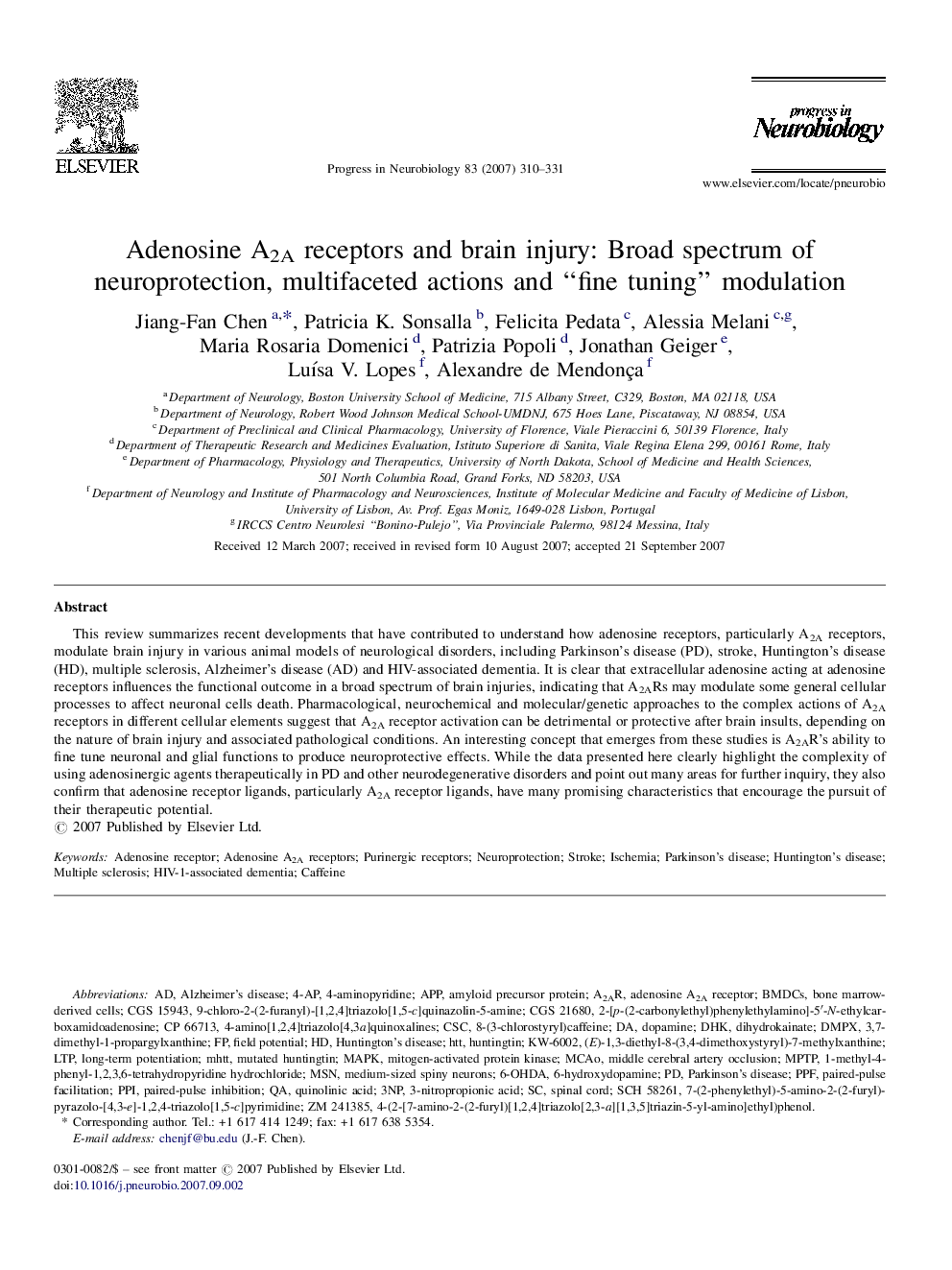| Article ID | Journal | Published Year | Pages | File Type |
|---|---|---|---|---|
| 4353839 | Progress in Neurobiology | 2007 | 22 Pages |
Abstract
This review summarizes recent developments that have contributed to understand how adenosine receptors, particularly A2A receptors, modulate brain injury in various animal models of neurological disorders, including Parkinson's disease (PD), stroke, Huntington's disease (HD), multiple sclerosis, Alzheimer's disease (AD) and HIV-associated dementia. It is clear that extracellular adenosine acting at adenosine receptors influences the functional outcome in a broad spectrum of brain injuries, indicating that A2ARs may modulate some general cellular processes to affect neuronal cells death. Pharmacological, neurochemical and molecular/genetic approaches to the complex actions of A2A receptors in different cellular elements suggest that A2A receptor activation can be detrimental or protective after brain insults, depending on the nature of brain injury and associated pathological conditions. An interesting concept that emerges from these studies is A2AR's ability to fine tune neuronal and glial functions to produce neuroprotective effects. While the data presented here clearly highlight the complexity of using adenosinergic agents therapeutically in PD and other neurodegenerative disorders and point out many areas for further inquiry, they also confirm that adenosine receptor ligands, particularly A2A receptor ligands, have many promising characteristics that encourage the pursuit of their therapeutic potential.
Keywords
Related Topics
Life Sciences
Neuroscience
Neuroscience (General)
Authors
Jiang-Fan Chen, Patricia K. Sonsalla, Felicita Pedata, Alessia Melani, Maria Rosaria Domenici, Patrizia Popoli, Jonathan Geiger, LuÃsa V. Lopes, Alexandre de Mendonça,
